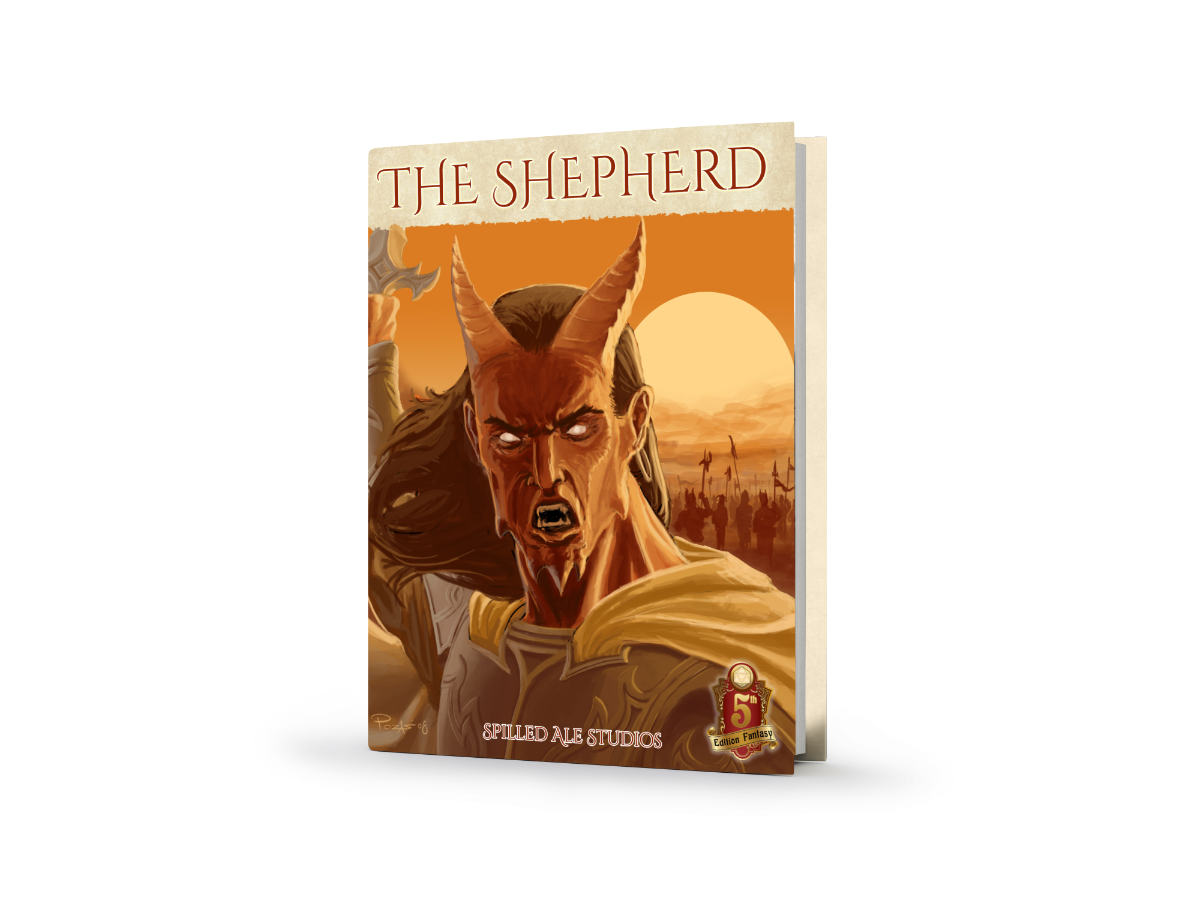Every cause needs its leader.
“An impassioned halfling stands atop a barrel in a candle-lit wine cellar, rousing her rebel comrades in readiness for a bloody night’s work eliminating the corrupt leaders of the city.
An elf sits serenely amidst the exposed roots of a tree, which have grown into the shape of a throne. They speak in a quiet voice that nevertheless carries through the reverential silence maintained by a hundred other elves gathered in the glade.
A human preacher stands at the corner where two streets meet, prophecying doom and offering salvation to the growing crowd of desperate folk gathering around him.
A hobgoblin in black armour sits astride a ferocious looking worg at the head of a massive army. He lifts his sword arm and sweeps it down toward the fortified city across the plain. At his mark, the swarm of evil begins its charge
All these and more are shepherds, individuals with an unusual power of influence over the hearts and minds of others.
The Shepherd class is a reinvention of the Bard which first appeared among the nonmagical classes and archetypes in Wasteland Wanderers. But a nonmagical leader is hardly a concept exclusive to post-apocalyptic settings! The version of the Shepherd presented here has been reworked with fantasy worlds in mind, and can be used to build characters with concepts as varied as cult leaders and warlords. While the Shepherd can replace the Bard in your game if you’re aiming for a low or no magic world, you can also make both classes available. The types of characters your players can build with the Shepherd fill a different narrative niche than the types of characters built with the Bard, and there’s no reason characters of both classes shouldn’t stand side by side in an adventuring party!
The Shepherd contains the following:
- The full 20-level Shepherd class progression, featuring a new resource: the Shepherd spends command to use barbed words, give allies pep talks, and spread terror among their foes.
- 4 archetypes—the Chronicler, Commander, Regent, and Tyrant (descriptions below).
- Muticlassing guidelines.
The Chronicler
You venerate learning, particularly the lessons of history and myths. And yet you see how fragile knowledge can be. In your own small way you seek to preserve these priceless treasures: everywhere you go, your force of charisma opens doors, allowing you access to people and places. You make your own records, you memorise songs, and you learn to tell epics. On your travels you share as much as you take, giving the collective wisdom of myriad peoples new life as their stories spread far and wide. Though they have the presence to lead, chroniclers rarely aspire to it. However, some eventually gather enough knowledge to found great libraries and other seats of learning.
The Commander
You know that conflict is inevitable, and in times of danger people look to champions to guide them through the darkness. You have the presence and the inclination to be just such a figure. As a commander you aren’t merely a charismatic speaker, you are also a warrior and a tactician. You might serve a nation’s army, a city’s watch, lead a mercenary force, or command the troops of a private faction. Perhaps you are still looking for your cause, or have lost a past one, and adventure for the sake of finding something to believe in and throw your support behind. Whatever cause you do choose, it could have no better weapon than your inspired leadership.
The Regent
As a regent, you have a knack for inspiring others to follow you and support your cause. Whatever you choose to believe in, or whatever you profess to believe, you can’t help but become a rallying point around which others gather. Thus, you become the head of any group you’re part of, quickly earning the trust and loyalty of others. Whether you deserve it is another matter entirely. Regents can be monarchs, mayors, politicians, guild leaders, and high priests of cults and sects. Regents often adventure to earn the riches and reputation to begin building their own cause.
The Tyrant
You have learned that when wielded correctly, fear can be an effective leadership tool that lends itself to fast results. It might not be pretty, but you aren’t concerned with something as petty as being liked! You want power and wealth, not friends, and you want them quickly. As long as you maintain your reputation for strength and power, your minions will remain loyal. Tyrants like yourself sit on the thrones of dictatorial states, leading criminal networks and secret societies, or at the head of vast, conquering armies.






